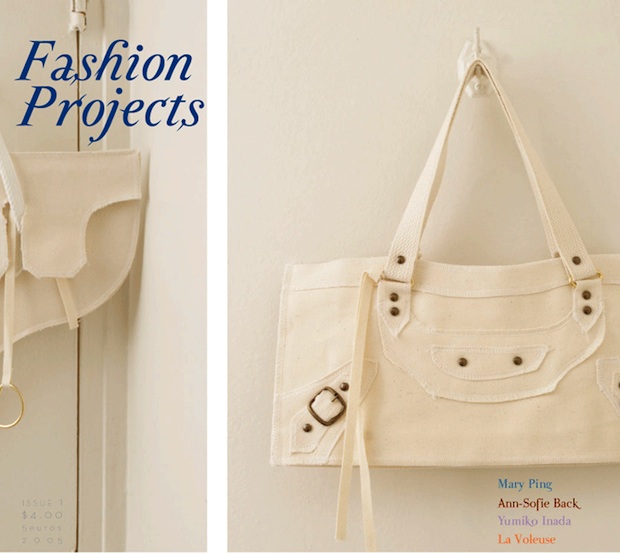【History Archives】
What We’re Loving: Dancing Horses,History Archives Critical Fashion
This Week’s Reading

For reasons I don’t begin to understand, Washington Irving’s Life of Oliver Goldsmithused to be required reading in American high schools. My own copy (1905) is a schoolbook edition, complete with suggestions for extra credit (“The teacher should know Thackeray’s English Humorists, D’Arblay’s Diary and Letters, Dobson’s Eighteenth Century Vignettes,” and four other books you’ve never heard of). It is hard to believe that such a fascinating biography was ever taught to kids. What did they care about the economics of Grub Street, or the incredible elegance with which writers once knew how to break a contract? Irving and Goldsmith both did plenty of hack work—a term Irving uses without prejudice—but this is clearly a labor of love and obsession. And it’s that rare thing in literary history: a penetrating essay by a great humorist, whose work is still just within our reach, about another who stands outside the pale. —Lorin Stein
For many of us, fashion is a tricky thing: while both the way people choose to dress themselves and the art form are fascinating, the intersection can be, to say the least, problematic. Enter Fashion Projects, a journal devoted to critical discourse in fashion. If that sounds oxymoronic, try issue 4, out now: an interview with Judith Thurman, Jay Ruttenberg on Bill Cunningham, and fashion criticism as political critique are just a few things it takes on. —Sadie Stein
If you need distraction from the state of your own life, reach for Mark Haddon’s A Spot of Bother. The novel opens with poor old George, recently retired, coming to terms with his “imminent death” (due to an unsightly spot of eczema he’s convinced is really cancer). As things escalate—cue his daughter’s marriage to a high-school dropout, and the troubling presence of both his wife’s lover and his son’s boyfriend at said wedding—George decides to “maintain a Buddhist detachment from the whole thing to stop it taking ten years off my life.” In presenting situations that we all know, heightened and sharpened, Haddon somehow manages to remind us that we all could have it much, much worse. —Matthew Smith
I have long wanted to see Nick Cave’s fantastical, handcrafted Soundsuits in action (not the Bad Seed Nick Cave, the Alvin Ailey–trained performance artist Nick Cave), and this week I finally had my chance. Thirty of his roughly life-size Soundsuit horses, each manned by a pair of Ailey dancers, are promenading at either end of Grand Central’s Vanderbilt Hall twice a day, only through Sunday. Midway through the performance, the brightly festooned equines, accompanied by live harp and percussion, break in two; the otherwise docile horse heads and horse ends engage in a roiling, choreographed performance equal parts African dance and Mardi Gras blowout. I never thought I’d see unadulterated joy on so many faces in the world’s largest train station. —Nicole Rudick
Aside from Brideshead Revisited—a wonderful novel to read during the slow onset of spring—my favorite book for the days leading up to Easter is Du Bose Hayward’s The Country Bunny and the Little Gold Shoes. There is no abundance of classic Easter stories for children the way there are Christmas, Thanksgiving, even Halloween stories; most books in the genre are either overtly religious, saccarine, or both. This title, about a young female rabbit who aspires to be an Easter bunny, is a prominent exception. Illustrated by Marjorie Flack in rich, Easter-egg hues and published in 1939, The Country Bunnyhas all the charms of children’s literature of its era, but was lightyears ahead in its treatment of the roles of women and mothers. It still feels fresh, and properly celebratory, today. —Clare Fentress
A recent conversation with our poetry editor left me thinking about the difference between prose poetry and micro-fiction. Red Olen Butler, annual judge of the World’s Best Short-Short Story Contest, defines prose poetry as epiphany-driven, whereas micro-fiction “has at its center a character who yearns.” Micro Fictionis a pocket-size anthology in which to explore the overlapping genres while perfectly filling the space between train stops. —Kendall Poe
Search
Categories
Latest Posts
George Clooney's 'Suburbicon': Movie review
2025-06-26 14:11Miss Texas gives a far better answer on Charlottesville than Trump
2025-06-26 13:23The stark difference between Hurricanes Andrew and Irma
2025-06-26 12:57Popular Posts
Trump's new tariff plan spares some smartphones, laptops
2025-06-26 15:02Apple's iPhone 8 event: What to expect
2025-06-26 14:51Tropical Storm Irma's surge floods Jacksonville and Charleston
2025-06-26 14:25Heartfelt note to kind coffee shop employees will lift your spirit
2025-06-26 14:11Today's Hurdle hints and answers for April 17, 2025
2025-06-26 12:49Featured Posts
Apple's iPhone 8 event: What to expect
2025-06-26 14:15Snapchat's newest media partners: college newspapers
2025-06-26 13:52MashTalk: What everyone secretly fears about the iPhone 8
2025-06-26 12:55'Mario Kart World' Nintendo Direct: 3 takeaways
2025-06-26 12:44Popular Articles
13 Good Games You Can Play on Laptops and Budget PCs
2025-06-26 14:24The iPhone 8 Event is Tim Cook’s biggest moment as Apple CEO
2025-06-26 14:21MashTalk: What everyone secretly fears about the iPhone 8
2025-06-26 14:15Mattel introduces new colorblind accessible version of 'Uno'
2025-06-26 13:41The Mismeasure of Media
2025-06-26 12:49Newsletter
Subscribe to our newsletter for the latest updates.
Comments (924)
Sharing Information Network
The 10 Most Anticipated PC Games of 2017
2025-06-26 14:07Unique Information Network
Check out a sneak peek at Malala's new book, "Malala's Magic Pencil"
2025-06-26 13:30Exquisite Information Network
Apple's historic iOS 11 leak may have been an inside job, report says
2025-06-26 13:18Fresh Information Network
Apple iOS 11 leak hints at Apple Watch LTE and new colors
2025-06-26 12:48Treasure Information Network
NYT Strands hints, answers for May 5
2025-06-26 12:31